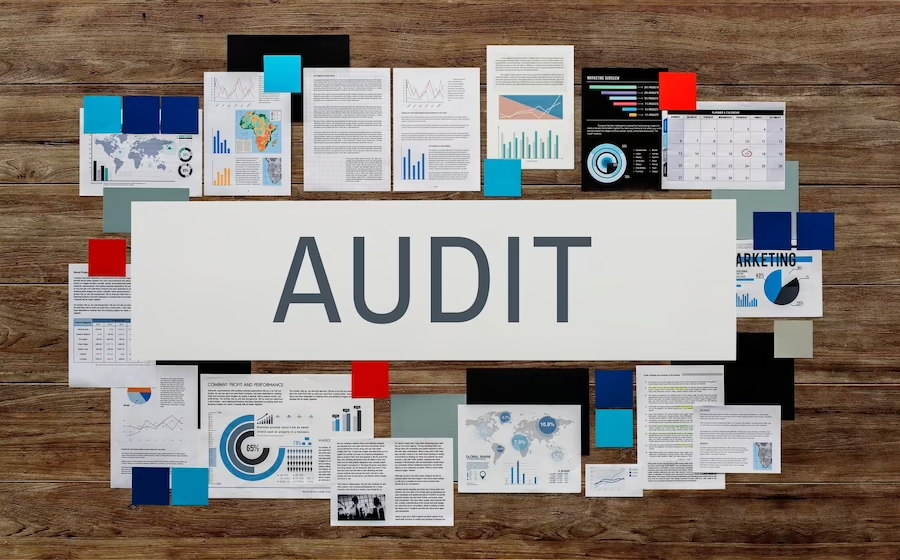What Are Internal Auditors & How Can They Benefit Your Business?
In the digital age, service industries like finance and ICT are becoming increasingly reliant on two things: technology and tight operational processes. That’s because businesses operating within these industries are tasked with handling sensitive information every day. And when it comes to securing this personal data on behalf of individual clients and other companies, there’s just minimal acceptable room for human error. So, how do you ensure your business isn’t at risk of making mistakes that ultimately mar your company’s reputation and trustworthiness?
For millions of companies worldwide, the answer to this age-old question is simply investing in internal audits to help maintain regulatory compliance. This can mean maintaining compliance with industry standards, internationally recognised ISO standards, federal and state laws, and internal company policies and procedures.
It’s also more accessible than ever to become an internal auditor, with internationally certified internal auditor training courses available across the globe. Even online courses allow professionals to complete internal auditor training at their own pace.
So, should your company make this investment and secure its internal auditor?
Below, we’ll provide an in-depth overview of internal audits and outline how having a trained internal auditor can help your organisation stay on top of its operational responsibilities to its staff, customers, and stakeholders.
What is an internal auditor?

The simplest definition of an internal auditor is an employee tasked with objectively evaluating your organisation’s operations and processes. Internal auditors are generally concerned with identifying compliance concerns, business risks, and inconsistencies within company records (i.e. any signs of fraud or crimes like insider trading).
As we mentioned, internal audits can be conducted in adherence to various referential standards and criteria, be they industry-specific or international standards like those developed by the International Organization for Standardization (ISO). To ensure that your internal audits are conducted correctly, internal auditors must attain certifications or other qualifications to perform each type of audit they’d like to carry out on your business.
For example,
if an internal auditor were looking to conduct an ISO internal audit, they would naturally need to be formally trained to understand all the ISO standards in question. Similarly, those looking to conduct financial audits would require a formal accounting and financial auditing background.
What’s the difference between an internal and external auditor?
If none of your staff are certified to conduct internal audits, then you can still conduct audits for your business with the support of an external auditor. As you may have guessed, internal auditors are company employees, whilst external auditors work for a third-party entity, typically an audit firm or accounting firm.
While business managers hire internal auditors, shareholders usually select external auditors. Findings from external audits are sent directly to company shareholders. These independent audits are typically used to provide company shareholders with a transparent and objective view of the company’s operations and performance. For this reason, external audits are most likely to be conducted during company valuations and when any significant operational or hierarchical changes have occurred.
Many business owners prefer conducting internal audits as they can be carried out autonomously and with minimal ongoing expense (once your internal auditor has been thoroughly trained). As internal auditors are company employees, they can also provide greater insight into the business from an employee perspective. This perspective can be valuable when correcting any identified compliance issues or business risks.
The benefits of conducting internal audits
From what we’ve shared, some of the more notable benefits of conducting internal audits may already be apparent. For instance, routine internal audits can help ensure your business’ operational processes are well-developed and implemented. For organizations seeking to become ISO certified, conducting preliminary internal audits can help ensure that your company’s gap analysis returns minimal points of improvement, which can see your certification process going much smoother and potentially even faster.
In digital transformation, conducting routine internal audits can also be a quintessential component of a company’s cybersecurity strategising. This is mainly because cyber threats are constantly evolving, and employees must be routinely trained to ensure that they work in alignment with your company’s cybersecurity policy and outlined best practices. Securing ISO 27001 certification for information security management systems and working to stay compliant with this international standard can also help your company organically maintain digital solid security and data management processes.
Maintaining a proactive approach to ensuring regulatory compliance may even help companies reduce their risks of being subject to litigation or accruing negative customer feedback and online reviews. In this regard, conducting routine internal audits can help preserve your company’s image and cultivate a strong reputation – which can, in turn, help grow your customer retention and acquisition rates.
How to become an internal auditor
With all the benefits outlined today, your next question may be how to secure a trained internal auditor for your company. As we mentioned earlier, becoming an internal auditor is easier than ever before, thanks to the development of online auditor training courses. With these resources and training opportunities available, business owners can invest in internal auditor training for select employees, allowing them to upskill alongside cultivating their skills as an asset to your business.
Business owners also have the option to hire a dedicated internal auditor rather than train an existing employee. When hiring dedicated internal auditors, it’s recommended that business owners examine the accreditation and qualifications of all candidates. Some candidates may have bachelor’s degrees in business or finance, while others may have degrees in relevant fields of study, like information technology. Additionally, all candidates should have evidence of completing auditor training courses and proven experience in providing these services as internal or external auditors.
Employees looking to upskill independently and gain accreditation as internal auditors can seek auditor training courses and discuss the possibility of providing internal auditing services with their employers. If you’d like to make a career out of providing auditing services, you may complete courses that directly explore the auditing process and all the standards and laws you’d like to offer your services.
As business technologies and processes become more dynamic and crucial to the scalability of your enterprise, internal audits can no longer be considered a luxury. They are, in short, a necessity for growth-oriented businesses. With that, business owners are encouraged to invest in internal auditing to ensure that they can keep their organisation poised to become a fierce competitor within their industries and a trusted entity within their communities.

















